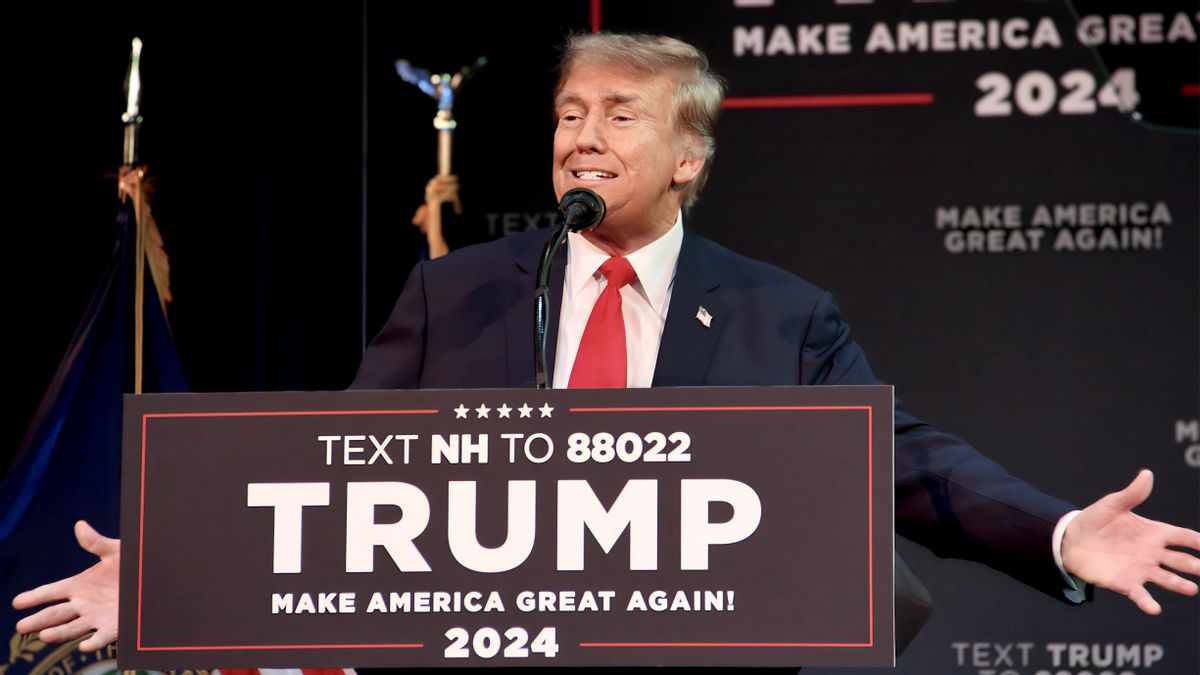JAKARTA - PT Mirae Asset Sekuritas Indonesia assessed that the results of the United States (US) election caused global uncertainty to increase related to changes in the policy direction of the US Government, especially in the field of international trade and taxation (fiscal).
Mirae Asset's Analyst Research Rizkia Darmawan said Donald Trump's victory in the US Presidential Election sparked a risk avoidance sentiment (risk-off) that caused increased fluctuations in the financial market.
According to Darma, this will have a considerable impact on determining policy directions in Indonesia, both monetary policy, and government policies which include fiscal policies and policies in the field of international trade.
"Meskipun demikian, perekonomian Indonesia menunjukkan stabilitas dan ketahanan meskipun berada dalam rezim suku bunga yang tinggi," ujar Darma dalam keterangannya, Selasa, 12 November 2024.
Darma said that after Trump won the US election, the Indonesian capital market reacted negatively, as reflected in a significant decline in the JCI for 2 consecutive days, 1.4 percent and 1.9 percent, respectively, bringing the total decline to 3.3 percent.
In addition, foreign investors recorded a net sell-off for 4 consecutive days since Trump's victory last week. The total net sell-off of foreign investors in 4 days reached IDR 6.5 trillion.
Darma said this had happened in Trump's 2016 victory, for example, causing the JCI correction of 7.3 percent within a week, and foreign capital outflows continued during 28 trading days with a total net sell-off of IDR 17 trillion.
Darma conveyed that Trump's policies during his presidency, including higher rates and a massive deportation plan, are also predicted to increase inflationary pressure.
"This is likely to hinder the space for the Federal Reserve to loosen its monetary policy by 2025, thus keeping interest rates tight," Darma said.
Darma also emphasized the importance of investor attention to this change in planning investment strategies to deal with global uncertainty.
According to him, the purchasing power of Indonesians who are still resilient is one of Indonesia's economic strengths.
So that if the flow of foreign funds (foreign outflow) subsides, the Indonesian market will benefit.
In terms of commodities, Darma said the commodity market in Indonesia faces varying challenges and opportunities in the fourth quarter of 2024.
In addition, Darma predicts that in the future commodity prices will fluctuate more than before because it depends more on global sentiment.
Darma continued, the high fluctuation can be used by market participants for short-term transactions at commodity prices and shares of companies whose businesses are related to commodities.
Darma assessed that the decline in global commodity prices has also had a direct impact on the energy and basic metal sectors, especially on crude oil prices and some chemicals.
Certain metal sectors, such as the basic metals used in the electronics and automotive industries, are still experiencing stable growth along with strong industrial demand, Darma explained.
SEE ALSO:
In particular, crude oil prices fluctuate due to global market uncertainty and US economic policy which is expected to have an impact on energy price movements.
Darma estimates that oil prices will be under pressure until the end of the year, which will also have an impact on revenue from the domestic energy sector.
On the other hand, Darma said basic metals such as nickel and copper continue to show positive potential given its strategic role in battery production for electric vehicles, especially in Southeast Asia.
The English, Chinese, Japanese, Arabic, and French versions are automatically generated by the AI. So there may still be inaccuracies in translating, please always see Indonesian as our main language. (system supported by DigitalSiber.id)
















